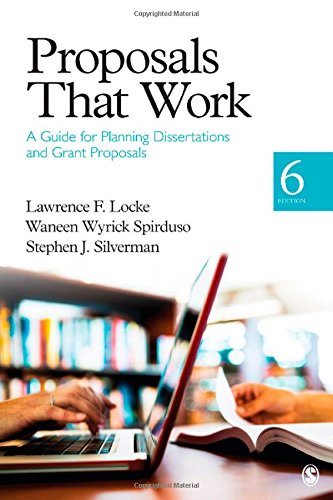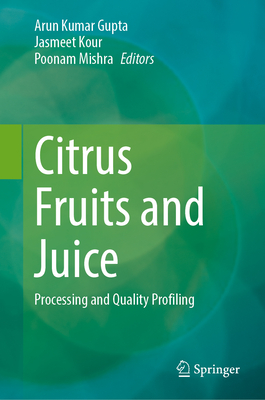图书简介
Qualitative Research Methods in Human Geography, 4e is a comprehensive, practical guide to understanding and conducting qualitative research in human geography.
Boxes and Figures; Notes on Contributors; Preface; Part I Introducing Qualitative Research in Human Geography; 1 Hilary P.M. Winchester and Matthew W. Rofe: Qualitative Research and Its Place in Human Geography; Chapter Overview; Introduction; What is Qualitative Research?; - What Questions Does Qualitative Research Answer?; - Types of Qualitative Research; - The Contribution of Qualitative Techniques to Explanation in Geography; The Relationship Between Qualitative and Quantitative Geography; The History of Qualitative Research in Geography; Contemporary Qualitative Geography - Theory/Method Links; Summary; Key Terms; Review Questions; Review Exercise; Useful Resources; 2 Robyn Dowling: Power, Subjectivity, and Ethics in Qualitative Research; Chapter Overview; Introduction: On the Social Relations of Research; Research Ethics and Institutional Review of Research Ethics; - Privacy and Confidentiality; - Informed Consent; - Harm; Ethics and Online Research; Criticisms of, and Moving Beyond, Ethical Guidelines; Critical Reflexivity; Power Relations in Qualitative Research; Objectivity, Subjectivity, and Intersubjectivity in Qualitative Data Collection; Summary and Prompts for Critical Reflexivity; Key Terms; Review Questions; Review Exercises; Useful Resources; Note; 3 Richie Howitt and Stan Stevens: Cross-Cultural Research: Ethics, Methods, and Relationships; Chapter Overview: An Explanation of Our Writing Method; Modes of Cross-Cultural Engagement: Colonial, Post-colonial, Decolonizing, and Inclusionary Research; Getting Started: Research Legitimacy and Local Authorization; Doing the Work; - The Scale Politics of Cross-Cultural Research Projects; - Social/Cultural Transmission and Creation of Knowledge; - Collaborative and Participatory Research; - Constructing Legitimacy; Making Sense, Reaching Conclusions; Postscript; Key Terms; Review Questions; Review Exercises; Useful Resources; Notes; 4 Jay T. Johnson and Clare Madge: Empowering Methodologies: Feminist and Indigenous Approaches; Chapter Overview; Introduction; Feminist Research Practice; Indigenous Research; Using Empowering Methods; 1. Approaching the Research; 2. Doing the Research; 3. The Politics of the Research; Summary: A Critical Reflection; Key Terms; Review Questions; Review Exercise; Useful Resources; Acknowledgement; 5 Janice Monk and Richard Bedford: Writing a Compelling Research Proposal; Chapter Overview; The Research Challenge; Where Do Research Ideas Come From?; Getting Started; Specifying Your Research Question; Framing Your Research; Developing Your Methodology; Writing the Proposal; Seeking Funding for Research; A Concluding Comment; Key Terms; Review Questions; Review Exercises; Useful Resources; Notes; 6 Qualitative Research Design and Rigour; Chapter Overview; Introduction; Asking Research Questions; - From Asking Research Questions to Conducting Research; Selecting Cases and Participants; - Selecting Cases; - Selecting Participants; - Participant Selection; - How Many Participants?; Ensuring Rigour; Final Comments; Key Terms; Review Questions; Review Exercises; Useful Resources; 7 Jamie Baxter: Case Studies in Qualitative Research; Chapter Overview; What Is a Case Study?; The historical development of the case study; N=1 and the Importance of Depth and Context; Types of Case Studies; - Theory Testing and Theory Generating cases; - Case Studies across Time and Space; Are Case Studies Generalizable?; Conclusion; Key Terms; Review Questions; Review Exercises; Useful Resources; Notes; Part II Doing Qualitative Research in Human Geography; 8 Kevin Dunn: Interviewing; Chapter Overview; Interviewing in Geography; - Types of Interviewing; - Strengths of Interviewing; Interview Design; - The Interview Schedule or Guide; Types of Questions; - Ordering Questions and Topics; Structured Interviewing; Semi-Structured Interviewing; Unstructured Interviewing; Interviewing Practice; - Contact; - The Interview Relation; - Closing the Interview; Recording and Transcribing Interviews; - Recording; - Transcribing the Data; - Assembling Field Note Files; Analyzing Interview Data; Presenting Interview Data; Interviews Using Computer-Mediated Communication; - Advantages of CMC Interviewing; - Challenges of CMC Interviewing; - Strategies for good CMC Interviews; Conclusion; Key Terms; Review Exercises; Review Questions; Useful Resources; 9 Karen George and Elaine Stratford: Oral History and Human Geography; Chapter Overview; Introduction; What is Oral History and Why use It in Geographical Research?; How is Oral History Different from Interviewing?; - Starting Ethically; - Getting to Know Your Participant - The Preliminary Meeting; - Sensitive Issues; - Multiple Interviews; - The Question of Questions; - Interview Structure; - Questioning the Source; - Sound Quality, Interview Sites, and Other Technical Issues; Why and How to Make Oral History Accessible; Uses of Oral History - Spreading the Word; Last Words; Key Terms; Review Questions; Review Exercises; Useful Resources; 10 Jenny Cameron: Focusing on the Focus Group; Chapter Overview; What are Focus Groups?; Using Focus Groups in Geography; Planning and Conducting Focus Groups; - Selecting Participants; - Composition of Focus Groups; - Size and Number of Groups; - Recruiting Participants; - Questions and Topics; - Conducting Focus Groups; - Online Focus Groups; Analyzing and Presenting Results; Conclusion; Key Terms; Review Questions; Review Exercises; Useful Resources; 11 Michael Roche: Historical Research and Archival Sources; Chapter Overview; Introduction; What is Archival Research?; Advice on Conducting Good Historical and Archival Research; Challenges of Archival Research; Ethics and Archives; Presenting the Results of Archival Research; Conclusion; Key Terms; Review Questions; Review Exercise; Useful Resources; Notes; 12 Pauline M. McGuirk and Phillip O’Neill: Using Questionnaires in Qualitative Human Geography; Chapter Overview; Introduction; Questionnaire Design and Format; Sampling; Pre-Testing; Modes of Questionnaire Distribution; Maximizing Questionnaire Response Rates; Analyzing Questionnaire Data; Conclusion; Key Terms; Review Questions; Review Exercise; Useful Resources; 13 Jim Craine and Colin Gardner: Visual Methodology; Chapter Overview; Visual Methods in Geography; Psychoanalysis and Semiotics; Discourse Analysis; Exploring the Virtual; Geovisualization as Method; Conclusion; Key Terms; Review Questions; Review Exercises; Useful Resources; 14 Gordon Waitt: Doing Foucauldian Discourse Analysis - Revealing Social Identities; Chapter Overview; Introducing Discourse Analysis; Doing Foucauldian Discourse Analysis; - Choice of Source Materials or Texts; - Suspend Pre-Existing Categories: Become Reflexive; - Familiarization: Absorbing Yourself In and Thinking Critically About the Social Context of Your Source Materials; - Coding: Once for Organization and Again for Interpretation; - Power, Knowledge, and Persuasion: Investigate your source materials for Effects of Truth; - Resilience and Rupture: Take Note of inconsistencies within your sources; - Silences: Silence as Discourse and Discourses that Silence; Reflecting on Doing Foucauldian Discourse Analysis; Key Terms; Review Questions; Review Exercises; Useful Resources; 15 Robin A. Kearns: Placing Observation in the Research Toolkit; Chapter Overview; Purposes of Observation; Types of Observation; Participant Observation; Power, Knowledge, and Observation; Stages of Participant Observation; - Choice of Setting; - Access; - Field Relations; - Talking and Listening; - Recording Data; - Analysis and Presentation; - Ethical Obligations; Reflecting on the Method; Key Terms; Review Questions; Review Exercises; Useful Resources; 16 Jamie Winders: New Media; Chapter Overview; What are New Media?; Thinking Spatially about and With New Media; What New Media Do; Who Are We on New Media? Who Are We With?; Putting It All Together; Key Terms; Review Question; Review Exercises; Useful Resources; Notes; 17 Sara Kindon: Empowering Approaches: Participatory Action Research; Chapter Overview; What is Participatory Action Research?; Conducting Good Participatory Action Research; The Value and Rewards of Participatory Action Research; Challenges and Strategies; Presenting Results; Reflecting on Participatory Action Research; Key Terms; Review Questions; Review Exercises; Useful Resources; Notes; Part III Interpreting and Communicating Qualitative Research; 18 Meghan Cope: Organizing and Analyzing Qualitative Data; Chapter Overview; Introduction: Making Sense of Data; Making Meaning I: Memos; Making Meaning II: Concept Mapping; Making Meaning III: Coding; - Types of Codes and Coding; - The Purposes of Coding; - Getting Started with Coding; Developing the Coding Structure; Coding with Others; Computer-Aided Qualitative Data Analysis Software (CAQDAS) and Qualitative GIS; Being in the World, Coding the World; Key Terms; Review Questions; Review Exercises; Useful Resources; Notes; 19 Juliana Mansvelt and Lawrence D. Berg: Writing Qualitative Geographies, Constructing Meaningful Geographical Knowledges; Chapter Overview; Styles of Presentation; - Positivist and Neo-Positivist Approaches: Universal Objectivity; - Post-Positivist Approaches: Situated Knowledges; Balancing Description and Interpretation - Observation and Theory; - The Role of Theory and the Constitution of Truth; - Writing and Researching as Mutually Constitutive Practices; - Issues of Validity and Authenticity; Conclusion; Key Terms; Review Questions; Review Exercises; Useful Resources; Notes; 20 Eric Pawson and Dydia DeLyser: Communicating Qualitative Research to Wider Audiences; Chapter Overview; Introduction; Understanding Audiences; Organizing and Representing Qualitative Findings; The Power of Qualitative Research; Conclusion; Key Terms; Review Questions; Review Exercises; Useful Resources; Appendix: Field Notes Example: Interviewing Sam; Glossary; References; Index
Trade Policy 买家须知
- 关于产品:
- ● 正版保障:本网站隶属于中国国际图书贸易集团公司,确保所有图书都是100%正版。
- ● 环保纸张:进口图书大多使用的都是环保轻型张,颜色偏黄,重量比较轻。
- ● 毛边版:即书翻页的地方,故意做成了参差不齐的样子,一般为精装版,更具收藏价值。
关于退换货:- 由于预订产品的特殊性,采购订单正式发订后,买方不得无故取消全部或部分产品的订购。
- 由于进口图书的特殊性,发生以下情况的,请直接拒收货物,由快递返回:
- ● 外包装破损/发错货/少发货/图书外观破损/图书配件不全(例如:光盘等)
并请在工作日通过电话400-008-1110联系我们。
- 签收后,如发生以下情况,请在签收后的5个工作日内联系客服办理退换货:
- ● 缺页/错页/错印/脱线
关于发货时间:- 一般情况下:
- ●【现货】 下单后48小时内由北京(库房)发出快递。
- ●【预订】【预售】下单后国外发货,到货时间预计5-8周左右,店铺默认中通快递,如需顺丰快递邮费到付。
- ● 需要开具发票的客户,发货时间可能在上述基础上再延后1-2个工作日(紧急发票需求,请联系010-68433105/3213);
- ● 如遇其他特殊原因,对发货时间有影响的,我们会第一时间在网站公告,敬请留意。
关于到货时间:- 由于进口图书入境入库后,都是委托第三方快递发货,所以我们只能保证在规定时间内发出,但无法为您保证确切的到货时间。
- ● 主要城市一般2-4天
- ● 偏远地区一般4-7天
关于接听咨询电话的时间:- 010-68433105/3213正常接听咨询电话的时间为:周一至周五上午8:30~下午5:00,周六、日及法定节假日休息,将无法接听来电,敬请谅解。
- 其它时间您也可以通过邮件联系我们:customer@readgo.cn,工作日会优先处理。
关于快递:- ● 已付款订单:主要由中通、宅急送负责派送,订单进度查询请拨打010-68433105/3213。
本书暂无推荐
本书暂无推荐















